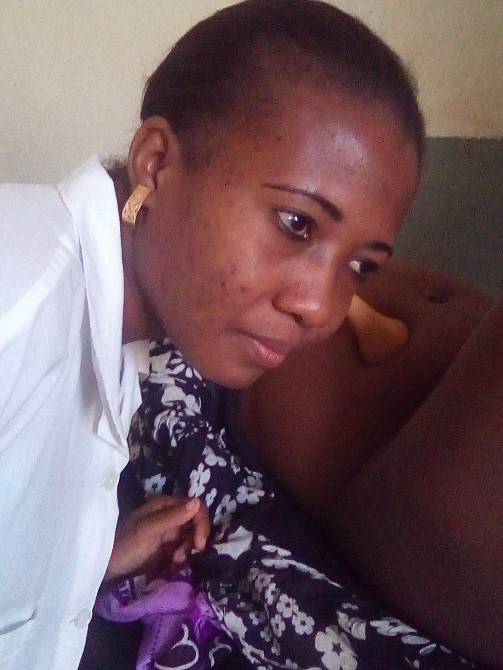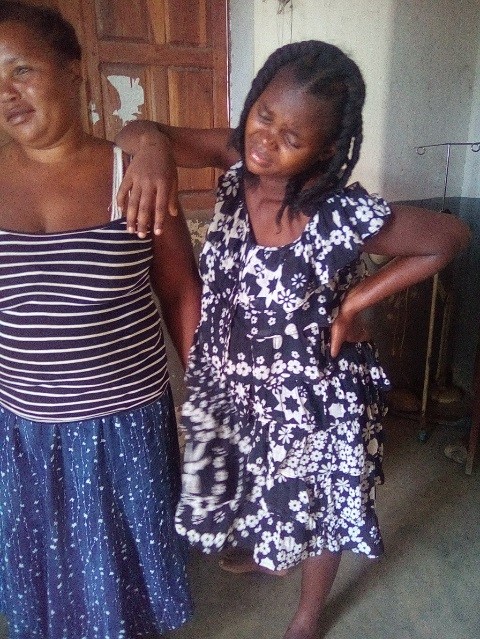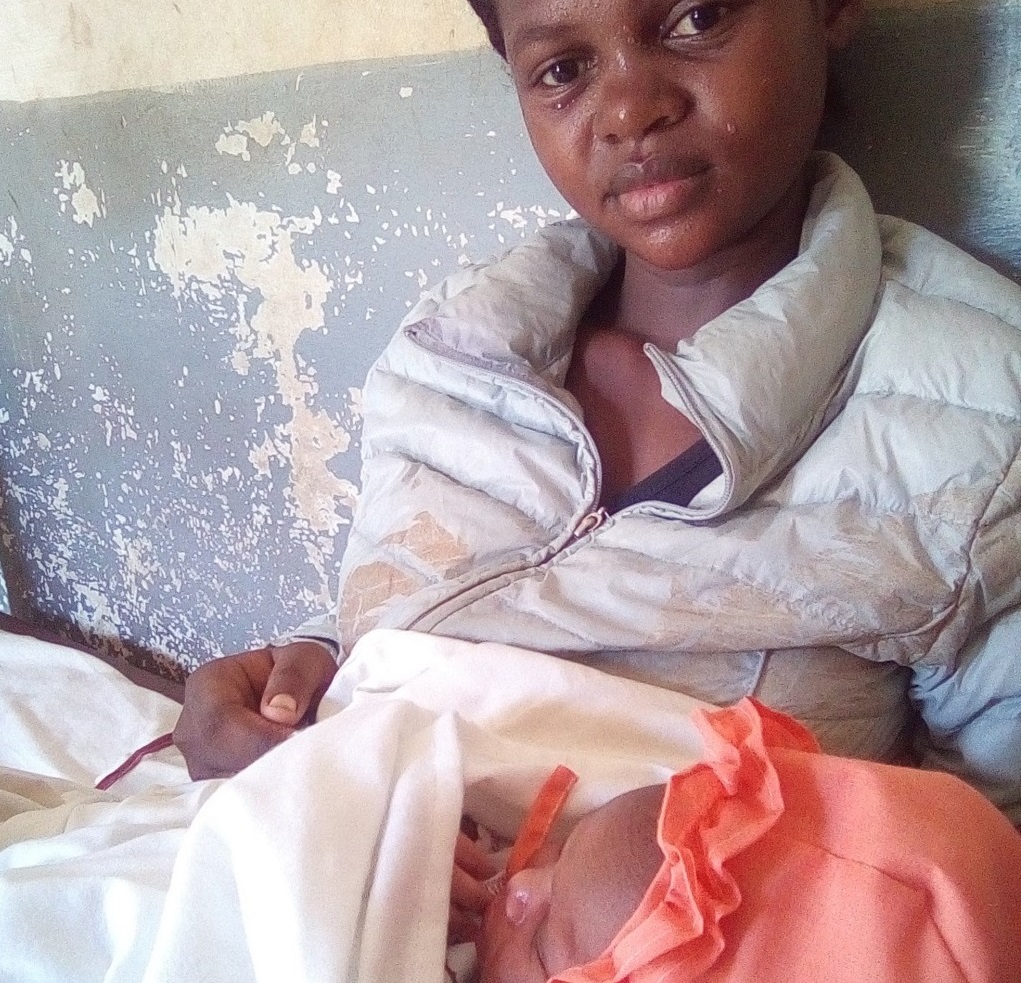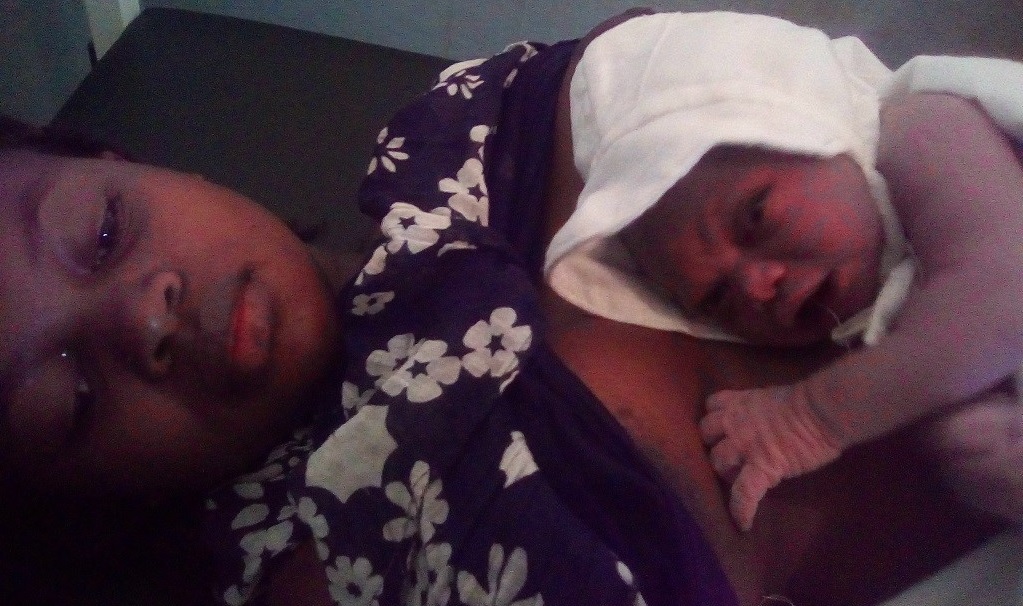Melaky Region, Madagascar – Sixteen-year-old Nany Mamisoa Esthelle was in labor. With each contraction, she cried out in pain while her grandmother repeatedly told her that it was both shameful to get pregnant as a young, unmarried girl and to scream during childbirth.
“You should not have gotten pregnant so soon. It is your fault you are in pain, because you are just a child,” Esthelle’s grandmother scolded her. “It is shameful for a woman to cry or moan while giving birth. I was very quiet every time and I had many children!”

Thankfully, Midwife Myrna Gilbert Volazafy was attending the delivery. In addition to clinical training on maternal and neonatal health, MCSP had trained Volazafy and her fellow providers at Maintirano Primary Health Center on gender-based violence prevention and respectful maternity care (RMC) to improve pregnancy and childbirth services and outcomes.
As a result, when Esthelle arrived to the facility early one morning accompanied by her grandmother and mother, Volazafy was prepared to counteract the traditional beliefs they brought with them. In most Malagasy communities, it is still common to discourage women to complain about birth pains.
Drawing on her MCSP training, Volazafy asked Esthelle’s grandmother to refrain from making such remarks, reminding her that birth companions are allowed to stay with delivering mothers only to offer moral support. “Childbirth should be a moment of happiness for the woman. The baby must be a gift, but not a burden,” Volazafy explained to her. “Depression and despair can overwhelm the mother. But with a little understanding and support, this can be avoided.”
Then Volazafy addressed the patient directly in a calm tone: “Rest assured, I am here.” She asked Esthelle if the position she was in suited her or if she wanted to walk around a bit.

This client-centered approach to clinical support is taught by MCSP for two key reasons – to stop the mistreatment of women during childbirth; and to create positive birth experiences that help to increase the number of facility-based
births. We share the World Health Organization belief that a woman’s experience of care during labor and childbirth is as important to health care quality as the provision of evidence-based clinical care.
Mistreatment of women in childbirth takes many forms, including verbal abuse, neglect, humiliation and discrimination. According to MCSP’s training module, RMC is the set of conditions that allows a woman to be comfortable and to experience childbirth as a happy event. Implementing this means ensuring patients’ comfort and seeking their opinions; not giving orders.
After her MCSP training, Volazafy said she better understood her patients’ right to information, informed consent and refusal. She also said she left with greater respect for individual’s choices and preferences, including support during maternal care.
“For me, a midwife’s obligation is to respect life, especially that of the woman who struggles to give life to her child,” Volazafy said. “I understood that and put into practice what I learned from the RMC training.”
Volazafy is one of 54 providers trained by MCSP on RMC in this region of Madagascar. Nationwide, the Program has trained 1,321 providers at 815 sites.
Once Volazafy had relaxed Esthelle, the patient became more confident advocating for herself. “Help me, I cannot take it anymore!” she shouted after several unsuccessful attempts at pushing. Volazafy gently put her hand on Esthelle’s shoulder and offered her encouragement: “I am here to support you. It’s already getting better, but you have to push harder this time!”
After many efforts – and many such reassurances – the baby finally arrived. “Congratulations! It’s a little girl,” Volazafy announced, handing Esthelle the newborn to put on her chest for skin-to-skin contact.

At MCSP, we believe all women – no matter their age or location – deserve respectful, culturally sensitive, women-centered care. When this belief is reflected in the care of providers, the results can be profound.
For Esthelle, it meant turning a fearful early labor into an empowering delivery and joyful early motherhood. The day after her delivery, Esthelle was in high spirits. “I felt confident and supported,” she said of her birth experience. “Who knows,” she added, gesturing to her sleeping baby, “maybe one day she’ll be a midwife like Volazafy!”

